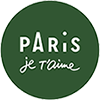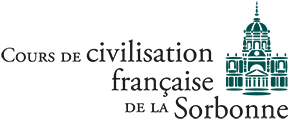France, territory of courtesy
Politeness and French culture
Politeness in France is an essential component of French culture. The French attach great importance to respecting social conventions and courtesy, whether in daily, professional or social life. This preoccupation with politeness often reflects the notion of “French savoir-vivre”. Here are some of the cultural specificities regarding politeness in France.
“Hello” and “Good evening”
In France, it is common to greet people with a “Bonjour” (in the morning or during the day) or a “Bonsoir” (in the evening) when entering a public place or starting a conversation. Failure to do so may be perceived as rude.
The use of titles and surnames
The French are often formal when speaking to someone for the first time or in a professional context. The use of titles (Sir, Madam, Miss) and last names is common, especially in a professional setting.
Polite expressions
Phrases like “please” (please in case of privacy), “thank you” and “excuse me” are used regularly. Saying “thank you” is essential after receiving a service or gift, and not doing so can be frowned upon.
Punctuality
Being on time is a sign of respect towards others in France. It is important to arrive on time to an appointment or meeting, especially in a professional or academic setting. When/if late , it is polite to notify in advance. But isn’t this a universal rule of courtesy ?
Kissing
When they meet or take their leave, French people tend to kiss each other on the cheeks. The number of kisses may vary from region to region, but two is generally the standard. This tradition contrasts greatly with what we sometimes observe in other countries around the world. In China it is therefore very rare to touch someone to him/her, Chinese modesty therefore excluding the hugs and effusions that we sometimes encounter in France.
Courtesy as a component of social rules
The art of conversation
French people often like to debate and discuss various subjects. However, it is important to be respectful of others’ opinions and avoid sensitive topics like politics, religion or money in light conversations. A reality which is close to that which we encounter in the United States where cordiality, which is often established easily, should not be confused with too cavalier familiarity!
Table manners
In France, meals are an opportunity to demonstrate politeness. Waiting until everyone is served before starting to eat is an important rule, as is the courtesy of thanking the host at the end of the meal. Renowned for its gastronomy, France offers multiple opportunities for visitors from around the world to savor typical dishes while enjoying good-natured discussions.
Dress codes
French people are attentive to their appearance and that of others. Dressing neatly is a sign of respect for the people you meet. It should be noted, however, that a certain lightness in the choice of outfits worn in France can contrast sharply with the more conservative habits of people born in certain Asian or Middle Eastern countries. So mutual understanding and tolerance are essential!
Courtesy at work
Politeness is essential in the professional environment in France. It is common to greet colleagues and superiors, a respectful and professional tone often being required. A courtesy that will not disorient our Japanese, Chinese or Korean friends for whom politeness in the workplace is an often unavoidable norm.
Politeness in public places
On public transport, it is polite to give up your seat to elderly people, pregnant women or people with disabilities. Queues are also respected. Here again for some international students or visitors from other backgrounds, familiarities in public can be destabilizing. Let us therefore be attentive to each other’s morals in order to facilitate dialogue and exchange!











